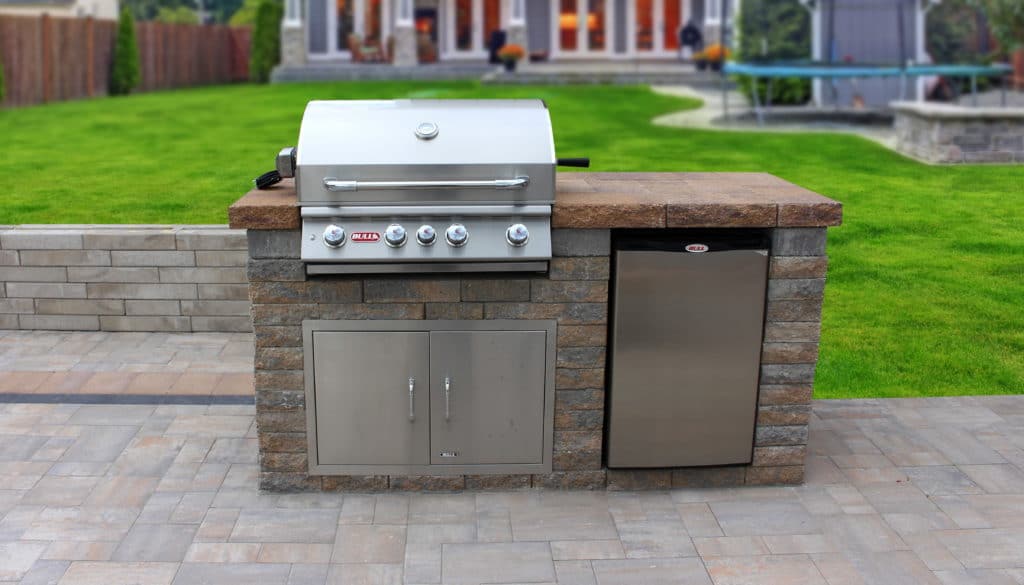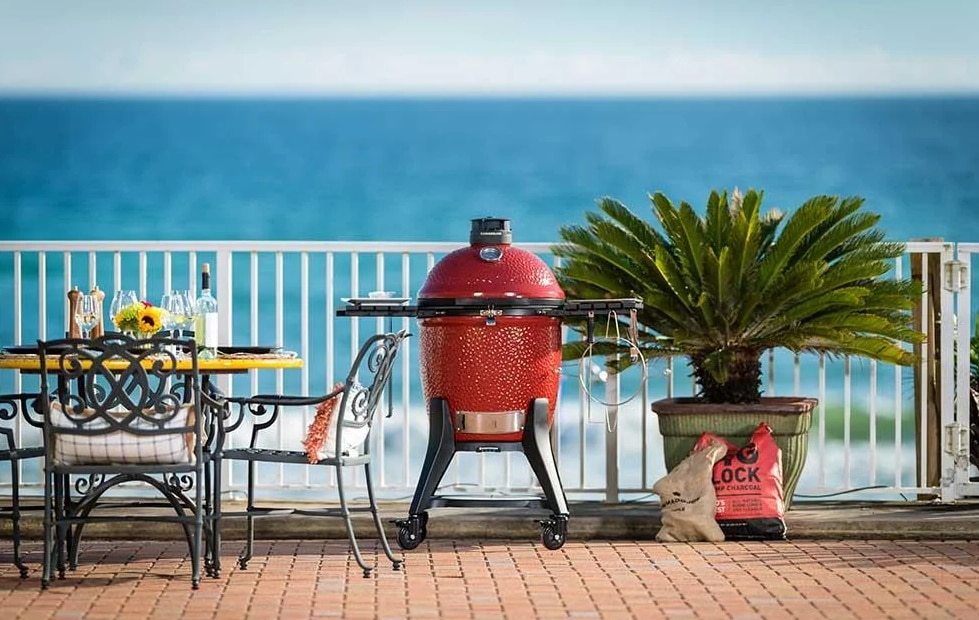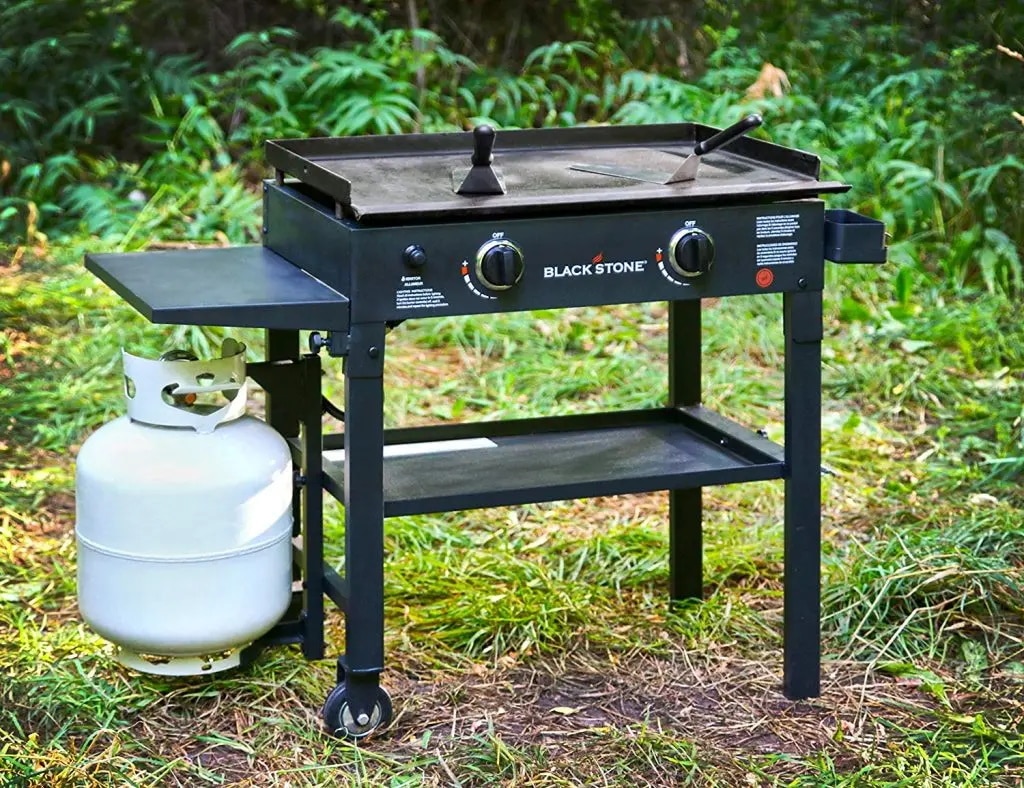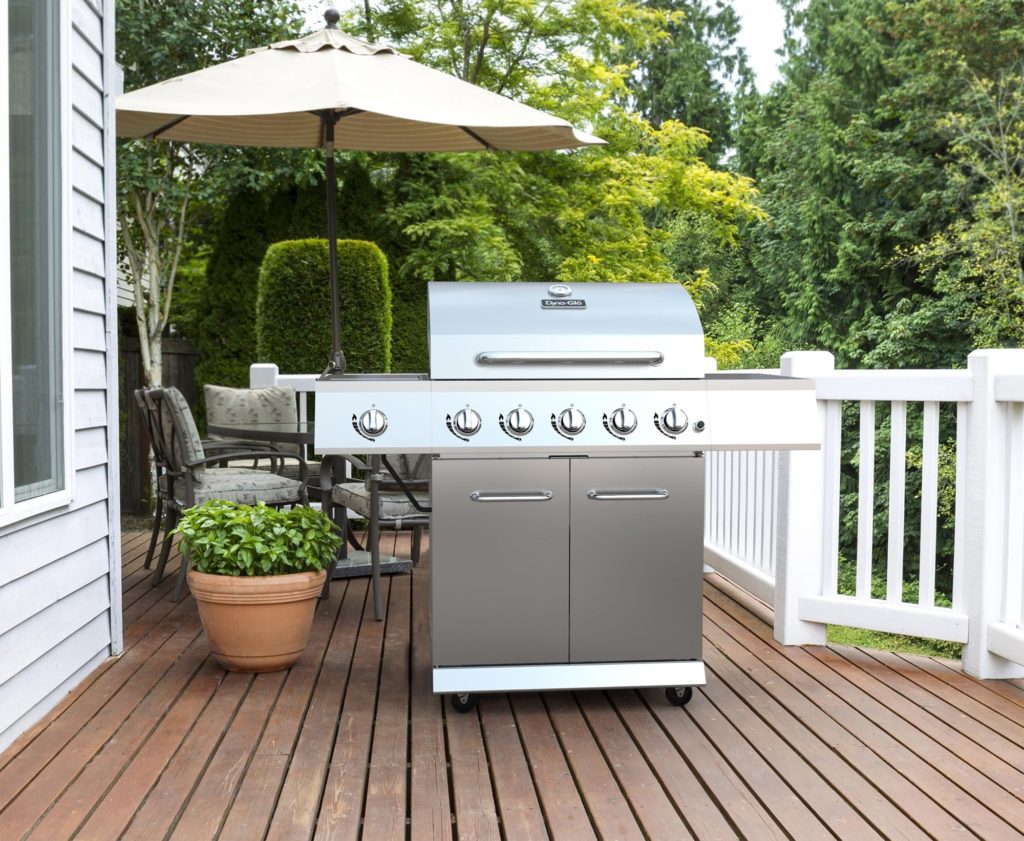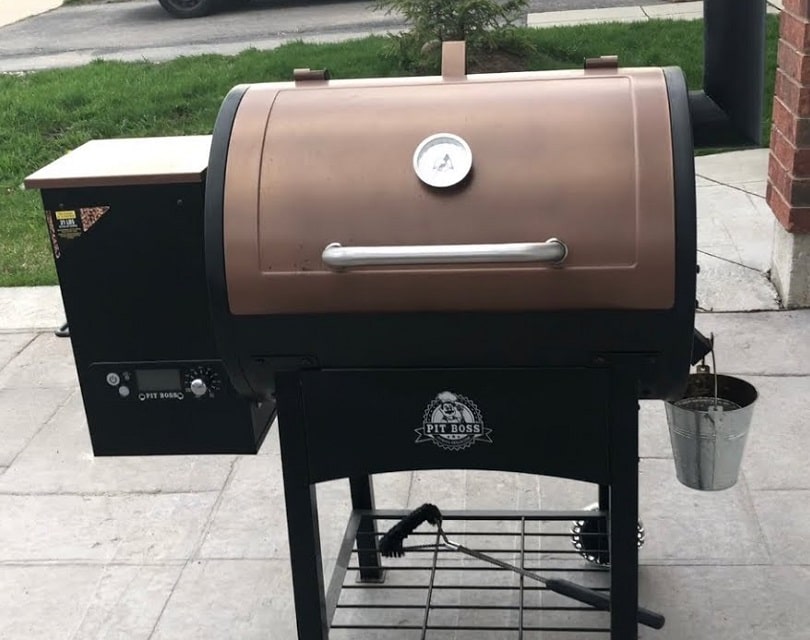

Barbecue enthusiasts continue to debate over the better option between charcoal vs gas grills, so we are here to review both types to help you make your own decision. Charcoal grill fans argue that it offers better flavor and provides unmatched smoke, authentic barbecue taste and an appealing crusty texture. Gas grill owners tout its ease of cleaning, faster heating and superior temperature control which makes gas the more convenient option.
It is easy to narrow down the arguments to a simple comparison between flavor and convenience, but there are a lot of other features and functionalities that differ in the two types of grills. We will analyze each of them as we weigh the pros and cons of a charcoal vs gas grill. Our team reviews their safety, temperature range, flavor and ease of use among other factors. Read on to find out more.
Gas grill vs charcoal grill, which is better for flavor? Charcoal is the undisputed king of the original barbecue taste; at least this is one thing fans on both sides agree on. While doing our research, we found out why this is so. For starters, charcoal grills generate rich smoke that even gas products with a smoke box can’t equal. Additionally, they are capable of reaching very high temperatures which makes them the best option for searing steaks while locking in juice and flavor and imparting that crispy texture to dishes. Gas grills may require an infrared burner to achieve such high temperature. The scrumptious smoky flavor also emanates from the fat drippings which infuse the smoke when they land on the hot charcoal.
The difference in flavor produced by a charcoal vs gas bbq is most noticeable in thick cuts like steaks. For fish, sausages, vegetables and thinner cuts such as wings, a gas model is likely to perform better because it won’t overwhelm the food with a lot of smoke.
Having said that, majority of people have unanimously crowned charcoal grills the winner of the signature barbecue flavor.
Cleanup: Charcoal grills are smoky, messy and cumbersome to clean. You have to contend with waiting for the hot coals to cool and clearing the dripping grease and ash before you can even start cleaning the grill. This is in contrast to gas units which can be easily tidied with a cleaning brush.
Fortunately, most units sold in the market are equipped with an effective cleanup and disposal system in form of removable trays and collection pans for ash and grease which you can simply slide out. Some users suggest layering the pan with an aluminum foil for extra protection or purchasing grills with removable racks.
Assembly: Buy a charcoal grill if you want a unit that you can quickly assemble and start grilling right away. Gas grills need to be connected to a propane tank which can take a while. Either of the two grill versions will take longer if there are multiple pieces to set up.
Convenience: Gas grills come with multiple user-friendly functions such as built-in temperature control which maintains consistent cooking temperature to avoid guesswork. Charcoal models need constant monitoring because you regulate heat by controlling the air vents and adjusting the position of the charcoal tray, either by moving it closer or further from the food. They are also prone to flare ups resulting from grease on hot coals.
When comparing propane vs charcoal grills, the former stands out for several versatile features that promote efficiency and convenience. With the best gas grill, you can program the cooking settings you need and the grill will do the rest of the work unattended. Besides that, there are multiple accessories you can buy separately as add-ons for your gas grill. They include smoke box, rotisserie attachment to slow-roast dishes and infrared burners to achieve high temperature for searing.
One advantage that makes charcoal grills versatile is that they can double up as smokers so you don’t need a smoke box. Depending on the model, you may also get one with a programmable timer, integrated thermometer and electronic ignition.
Charcoal-grilled meat may taste better but gas grills provide more diverse ways to expand your palate because they can grill meat, poultry and fish as well as delicate fruits and vegetables without an overpowering smoky taste.
Be cautious when using gas since it is flammable and may explode or leak if it is not properly connected to the tank.
Some residential buildings have fire code restrictions on smoke and open flames such as charcoal grills. Charcoal grills also flare up from fatty food.
Confirm compatibility with your model before buying any accessory to avoid damage and voided warranty.
Later on, we talk about the recommended cooking temperatures to ensure your food is safe. We will also assess charcoal vs gas grills for health issues such as the carcinogens produced by burnt meat.
Gas vs charcoal grill cost varies but charcoal models are usually cheaper than gas grills since you can get a starter one at less than $5 while equivalent gas units may be priced at a minimum of $10. The low initial cost of charcoal models is due to their simplicity. Gas grills are likely to have advanced functions that raise the cost.
Both charcoal and gas grills have health benefits because the dripping fat reduces the calorie content of your meals. For this reason, you may want to take one with you anywhere to make nutritious dishes on demand. You can get portable gas grills that are convenient for camping and cooking classes. However, the most compact option would be a pellet grill. It is cheaper to maintain than a charcoal or gas bbq and it supports direct and indirect heating with minimal supervision. You can also choose your favorite pellet taste and scent from multiple flavor options to make your food sweet, fruity or musky. Most of these models have wheels to enhance mobility. There are portable pellet grills that support different power sources to ensure you are not out of fuel when you’re on the move.
Earlier studies conducted on gas vs charcoal grill have linked them to carcinogens produced when you cook meat at extremely high temperature. However, based on recent findings, the U.S Department of Agriculture notes that eating grilled meat moderately poses no harm Trusted Source AskUSDA Some studies suggest there may be a cancer risk related to eating food cooked by high-heat cooking techniques as grilling, frying, and broiling. Based on present research findings, eating moderate amounts of grilled meats like fish, meat, and poultry cooked — without charring or burning — to a safe temperature does not pose a problem. ask.usda.gov as long as it is cooked at safe temperature to avoid charring or burning it.
The Department updated their recommended cooking temperature last year to reduce pork cooking temperature to 145 ºF and include 3-minute rest time for pork, beef, lamb and veal. The
safe cooking temperature
Trusted Source
Cooking Meat? Check the New Recommended Temperatures | USDA
Cross posted from the FoodSafety.gov blog:
On May 24, USDA made some important changes in their recommended cooking temperatures for meats. Here’s what you need to know:
www.usda.gov
for poultry and ground meat remains unchanged at 165 ºF and 160 ºF respectively.
As long as you adhere to these temperatures when cooking with a charcoal or gas grill, you are not risking health issues such as cancer caused by burnt or charred meat.
Charcoal’s carbon print is reported to be thrice as much as propane’s. This makes gas the better option for conserving the environment.
Gas grills are not only faster to ignite with a push button, but they also take less time to reach the target cooking temperature; approximately 10 minutes compared to charcoal models which may take up twice as long.
Starting a charcoal grill is tedious because you have to wait for coals to burn after lighting them before they produce proper cooking heat. To start a charcoal grill, you can use lighter fluid or the more convenient chimney starter. There are also accessible models with electronic ignition to speed up startup.
Gas grills perform better in preheating, startup time, and temperature control. You can set and maintain the desired cooking temperature by adjusting a user-friendly dial. A good illustration of this is Weber Genesis II S-435 Propane Grill. It has several selling points such as high output of 69,000 BTUs, spacious cooking area measuring 844 square inches to suit a large family, fuel gauge, storage shelves, and wheels for smooth transport. Besides that, it is compatible with iGrill 3 which enables you to monitor internal meat temperature remotely on your smartphone.
Charcoal grills need you to constantly tend to the fire by adding coals or adjusting the air vents and the height of the charcoal tray to regulate heat, making it tricky for beginners. However, charcoal models are superior in reaching the high temperatures necessary for searing. To sear with a gas grill, you may have to incorporate an infrared burner to intensify heat.
When researching propane vs charcoal grills, look for a model with a broad temperature range that supports both low heat and high temperature cooking. This allows you to diversify your recipes and cooking methods.
The type of fuel you use will affect your food’s flavor. For instance, pecan, oak, hickory, cherry and other hardwood pellets are used to impart food with different unique flavors.
Apart from the infused taste, your choice of fuel will also be determined by the pricing in your locality. I say this because propane gas is typically more expensive than charcoal in most places, so keep that in mind when estimating gas vs charcoal grill maintenance costs. Natural gas would also be cheaper than propane in the long run.
To sum up our review of gas grill vs charcoal grill, determining which is better among the two largely depends on an individual’s lifestyle. You must consider what types of food you prepare, how long they will take to get ready, and how often you make those dishes. A busy schedule would favor the speed and convenience of a gas grill. So would a frequent diet of fish, vegetables, sauces and thin cuts of meat. But if you are a devotee of crispy steak and you would like a reliable investment that indulges your cravings, we recommend Kamado Joe Classic II 18-Inch Ceramic Grill, a 3-in-1 unit consisting of a charcoal grill, oven and smoker. It features cooking surface of 254 square inches, split heat deflectors for indirect cooking, an adjustable rack and efficient ash management.
